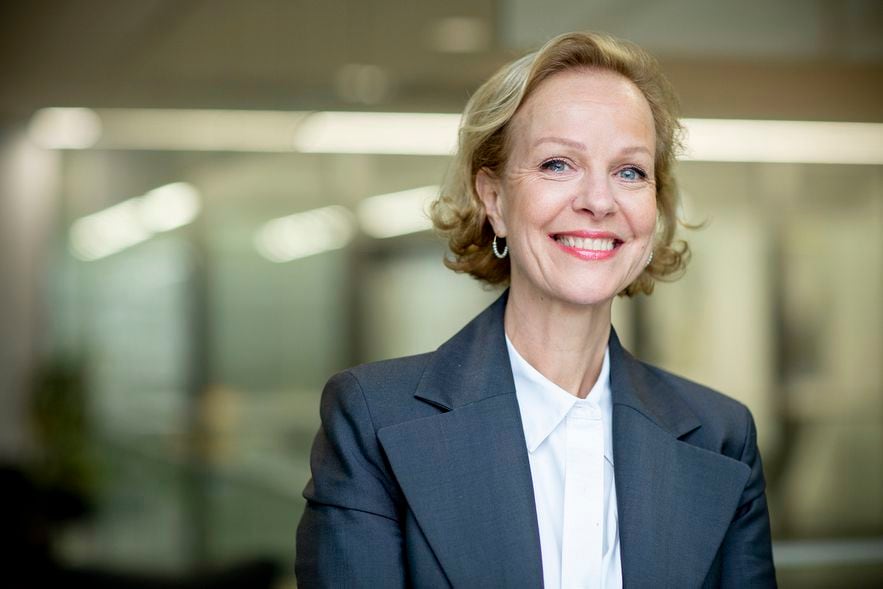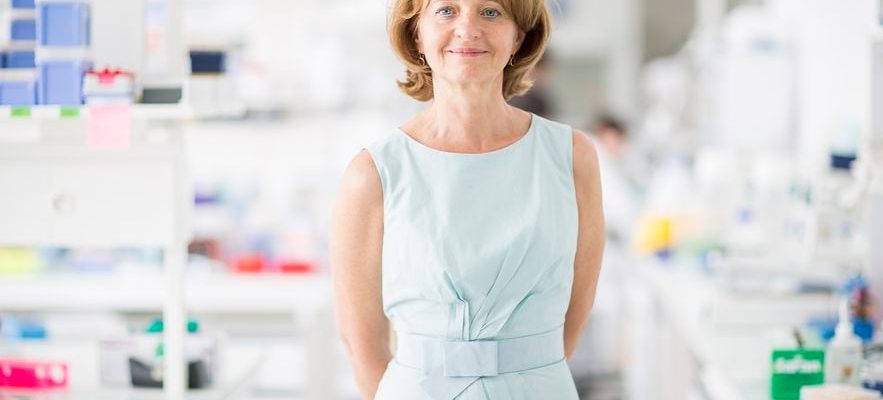Marina Cavazzana is a pioneer in gene therapies. Professor of hematology at Necker Hospital – Sick Children and director of research at the Imagine Institute of Genetic Diseases, she has devoted her career to developing and testing cutting-edge treatments to fight immune and blood diseases. Some of the innovative drugs that she helped to develop are now beginning to arrive on the market, such as Zynteglo against beta-thalassemia, a dreaded blood pathology that affects more than 300,000 people worldwide. .
Marina Cavazzana
© / Smart Immune
“The principle of gene therapy is simple: use the patient’s cells, correct them in the laboratory, then transplant these genetically modified cells,” explains this 65-year-old scientist, born in Venice to a railway worker father and a teacher mother. . Autograft has two major advantages: no donor is necessary, and the risks of immunological complications, in particular rejection by the patient’s immune cells, are zero. Conversely, a classic transplant of partially compatible stem cells presents a mortality risk of 30% at three years, because it takes twelve to eighteen months to regenerate the white blood cells necessary to fight against pathogens such as viruses.

Karine Rossignol
© / Smart Immune
In twenty-five years, Marina Cavazzana has been able to treat around fifty young patients using genetically modified cells. A still emerging field of medicine, in which this dynamic and determined woman can already boast nine world firsts! In 1999, with Professors Alain Fischer (the government’s “Mr. Vaccine” during the Covid-19 pandemic) and Salima Hacein-Bey, she treated a child with severe combined immunodeficiency linked to the chromosome using gene therapy. X, a disease called X-SCID due to the absence of T lymphocytes and NK cells. In 2010, she participated in the development of the first gene therapy for beta-thalassemia, then led one of the first clinical trials aimed at evaluating this therapy. “My motivation is to be able to treat patients without inflicting heavy treatments with significant toxicity,” confides Marina Cavazzana.
“Both a bulldozer and a butterfly”
The researcher and pediatrician says she works fifty to sixty hours a week. She finds a second wind by practicing gyrotonic, pilates, tennis, skiing in her spare time, not forgetting trekking. Even if it means climbing 5,000 meters on a mountain, like in Peru two years ago. “She’s both a bulldozer and a butterfly. She has extraordinary determination, but also a real sensitivity, full of doubts,” says her colleague and friend Karine Rossignol.
The latter, daughter of teachers, pharmacist graduated from HEC having cut her teeth in cosmetics at Guerlain, L’Oréal and Chanel, joined the Imagine institute from its creation in 2006, as co-general secretary. A UFO in the hospital world. “I was tired of selling creams to wealthy old ladies,” she smiles. This turning point has its roots in his personal history. She was 13 when, suffering from lupus, an autoimmune disease, she learned that she would “never study or have children”. Today the mother of three daughters, she owes her recovery to Professor Claude Griscelli, of the Necker hospital, who took care of her at the time, and whom she therefore followed twenty-five years later during the launch of the Imagine Institute.
Karine Rossignol’s contribution was essential. “We had 800 euros in the bank account in 2006. We raised 183 million euros in ten years,” says this workaholic with unwavering optimism and a contagious smile. “Karine has a capacity for work that I have never seen elsewhere and a keen sense of social relations. She knows how to build relationships with a technician, a researcher or a President of the Republic with the same enthusiasm. She also has an enormous sense of celebration”, says Marina Cavazzana. Their friendship led them to spend weekends relaxing in Venice, where the researcher is from. “We had a spritz there at 11 a.m., on an empty stomach,” she remembers.
Six years ago, Marina Cavazzana and Karine Rossignol set themselves another challenge. With researcher Isabelle André, who also works at the Imagine Institute, they created the Smart Immune biotech. Their objective: to accelerate the reconstitution of the immune system after a transplant, with the promise of going from twelve to eighteen months to just one hundred days. “Cells reinforced by Smart Immune are like super James Bond!” says Karine Rossignol, with her taste for popularization. Their company now has 25 people and has raised 23 million euros since its creation in 2017… including 1 million from a choice investor, the Bill & Melinda Gates Foundation, which signed its first participation in a round of table in France. “The verification period lasted twelve months, because this is a particularly demanding investor. But the operation gave incredible visibility to our company,” appreciates Karine Rossignol. The company thus recruited as medical manager the American Rahim Fandi, a seasoned scientist with experience at Novartis, Bristol Myers Squibb and AstraZeneca. “If we hadn’t had Bill Gates in the capital, he would have hesitated,” says Karine Rossignol.
Smart Immune also convinced the European Innovation Council. He promised funding of 17.5 million euros, which should be finalized next year. Enough to move forward calmly towards phase 2, which should end in 2026. With the hope, ultimately, of treating “thousands, even tens of thousands of patients” around the world.
An article from the special health section published in L’Express on March 28.
